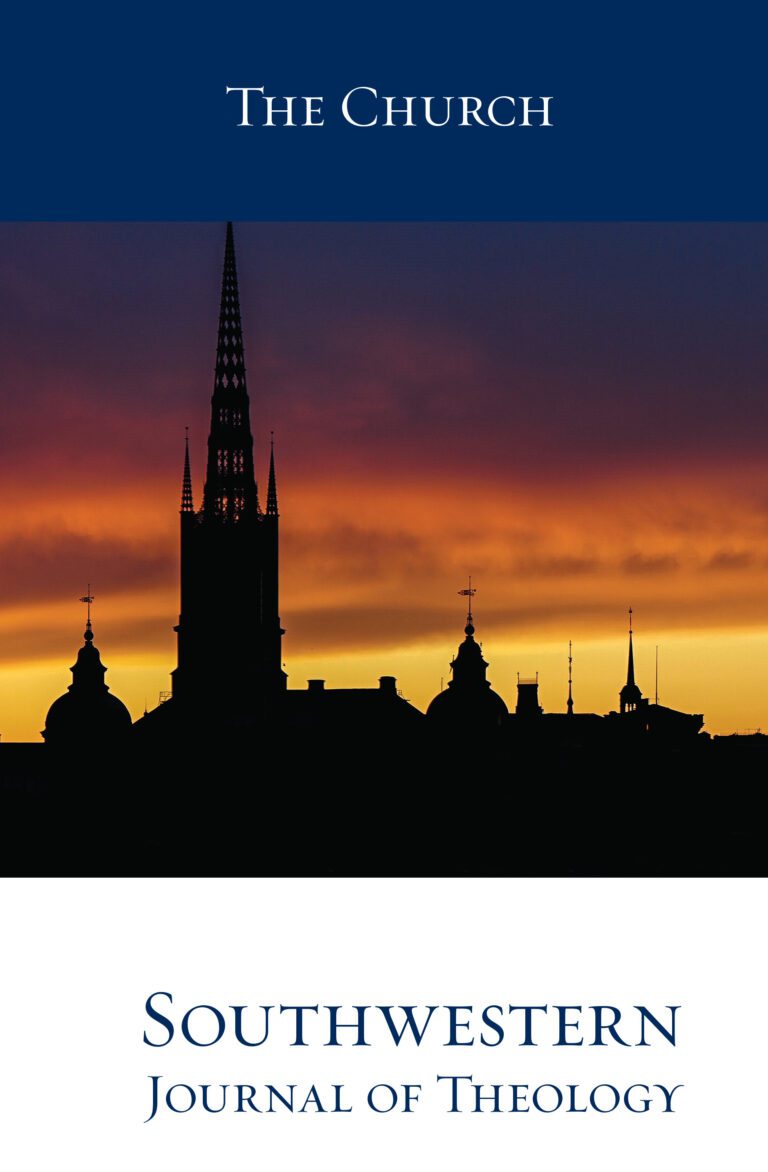
The Church
Southwestern Journal of Theology
Volume 61, No. 1 – Fall 2018
Editor: W. Madison Grace II
Edited by Jason K. Allen. Nashville: Moody Publishers, 2017. 192 pages. Paperback, $13.99.
Portraits of a Pastor is a collection of lectures that was given at the first annual For the Church conference at Midwestern Baptist Theological Seminary. Jason Allen, the president of Midwestern, edited the volume and with eight others contributed to it. This book does not intend to give an exhaustive in-depth look at each of the roles of the pastor. Instead, what Allen has compiled are 9 snap shots of different roles he, and the other contributors, believe are essential to the ministry of the pastor. The central questions of the book are as follow: “What is the pastor to be? What must the pastor do?” (13). The picture that emerges seems overwhelming for one person to perform; nevertheless, the book provides a solid overview of the ministry of the pastor.
The best chapters are Jared Wilson’s chapter, “Pastor as Shepherd,” Owen Strachan’s chapter, “Pastor as Theologian,” and Donald S. Whitney’s chapter, “Pastor as Man of God.” Wilson focuses on the importance of loving people and loving Jesus. A pastor that does not love is not really a pastor at all. He writes, “What I notice a lot every day in the Christian spheres of social media is just how incredibly adept we evangelicals are at doctrinal criticism, cultural rebuke, theological analysis…But what seems less prevalent is love for Jesus” (26). Strachan presents an excellent exposition of 2 Timothy 1:5–14. His argument, that the academy has “boxed theology up,” and that “the demotion of the pastor in American and even Western cultural life is likely the most significant intellectual trend of the last five hundred years,” is something that pastors and theologians need to think through. Would not theology best be done by those serving in the church? Whitney presents the need for pastors to pursue personal holiness. He rightly notes, “Not every man of God is a pastor, but every pastor must be a man of God” (161). Whitney further makes the argument that pastors need to exercise spiritual disciplines to be the man of God that God calls them to be.
Some of the weaker chapters are Allen’s chapter, “Pastor as Preacher,” and Christian T. George’s chapter, “Pastor as Church Historian,” To be clear, these chapters are not defective chapters, they just are not as helpful as the others. Allen makes a few statements that are questionable. First, he states, “I believe preaching is the pastor’s preeminent responsibility” (57). This is understandable coming from a preacher like Allen. But is it correct? Would not a more biblical approach be to say, the preeminent responsibility of the pastor is prayer and the teaching of the Word (Acts 6:4), with teaching encompassing more than just preaching? Second, he states, “After all, as Broadus observed, if preaching was primary in Jesus’ ministry, ought it not be primary in ours?” (70). Again, is this correct? Was Jesus more focused on preaching to the masses or on teaching his disciples?
George’s argument is the weakest of the chapters because it is probably the most unnecessary of the 9 roles mentioned in the book.That is not to say that church history does not have its place. But it is to say that if a pastor is not a church historian, it would not adversely affect his ministry in a significant way. Yes, he can benefit from church history. But to call it essential seems to be a stretch. Also, George makes a statement that does not align with what typically has been understood throughout history: “Christian history has been called the queen of all disciplines because, like an umbrella, she encompasses the rest of them” (95). Actually, theology is referred to as the queen of all disciplines, not church history.
From an overall perspective, there is a lack of cohesion between the chapters. In other words, how would these different roles function together in the life of a pastor? Also, is there one that stands alone as the most important? While Allen would contend that it is the preaching ministry of the pastor, I think Duesing better captures the preeminent role of the pastor. He wrote, “The pastor can faithfully be a missionary as a natural part of his primary duties of prayer and the ministry of the Word” (145). A helpful addition to the book would have been to show how all these different roles serve the primary duties of the pastor.
Portraits of a Pastor was not meant to be a dictionary of pastoral theology. Instead, the goal was to offer a short summary of 9 roles that are essential to the pastor’s ministry. While there were some critiques noted, there is much the reader can gain from each chapter in this book. Allen has done well to compile a strong list of contributors with a strong list of topics. For the pastor who is short on time, but would like to read something meaningful, this is a worthy choice.





